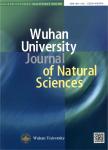A Simple Game for the Study of Trust in Distributed Systems
A Simple Game for the Study of Trust in Distributed Systems作者机构:Department of Computer Science Yale University New Haven CT 06520-8285 USA
出 版 物:《Wuhan University Journal of Natural Sciences》 (武汉大学学报(自然科学英文版))
年 卷 期:2001年第6卷第Z1期
页 面:72-82页
核心收录:
学科分类:08[工学] 0835[工学-软件工程] 081202[工学-计算机软件与理论] 0812[工学-计算机科学与技术(可授工学、理学学位)]
主 题:agent algorithm artificial society trust
摘 要:Trust is an important aspect of the design and analysis of secure distributed systems. It is often used informally to designate those portions of a system that must function correctly in order to achieve the desired outcome. But it is a notoriously diffcult notion to formalize. What are the properties of trust? How is it learned, propagated, and utilized successfully? How can it be modeled? How can a trust model be used to derive protocols that are effcient and reliable when employed in today s expansive networks? Past work has been concerned with only a few of these issues, without concentrating on the need for a comprehensive approach to trust modeling. In this paper, we take a first step in that direction by studying an artificial community of agents that uses a notion of trust to succeed in a game against nature. The model is simple enough to analyze and simulate, but also rich enough to exhibit phenomena of real life interactive communities. The model requires agents to make decisions. To do well, the agents are informed by knowledge gained from their own past experience as well as from the experience of other agents. Communication among agents allows knowledge to propagate faster through the network, which in turn can allow for a more successful community. We analyze the model from both a theoretical and an experimental point of view.



